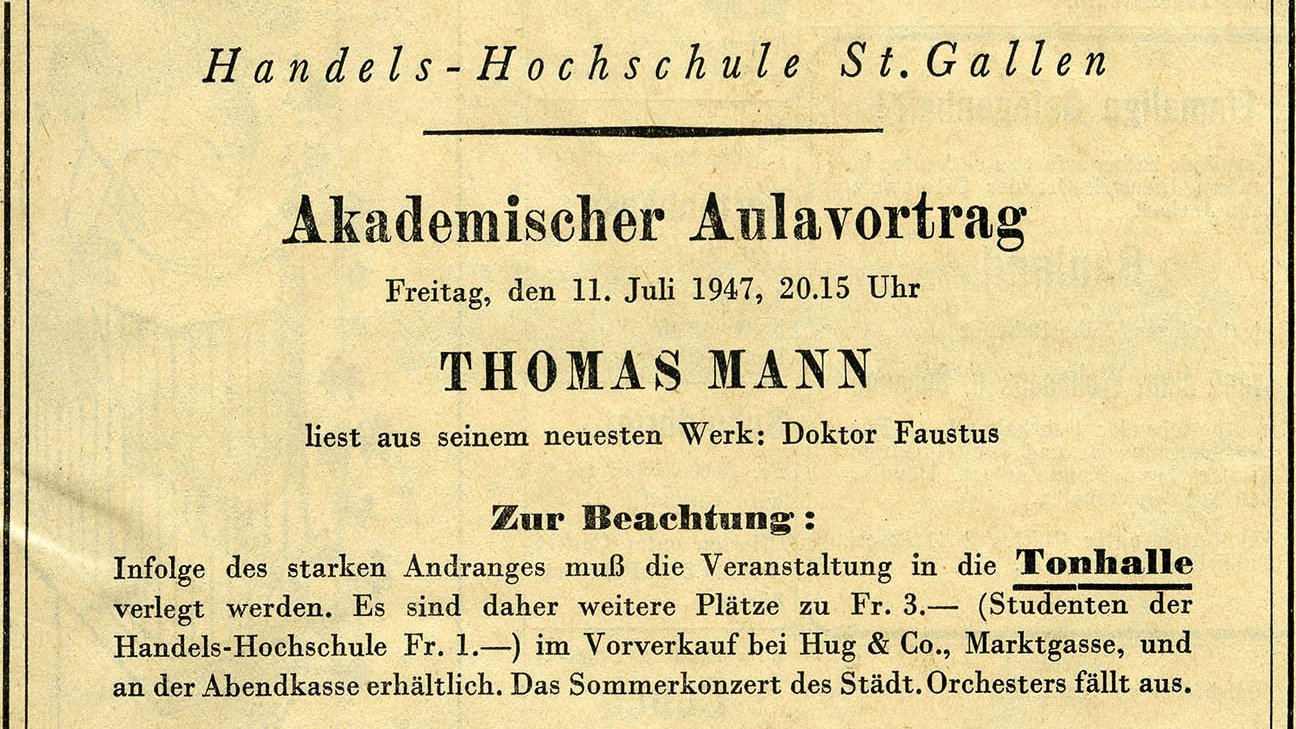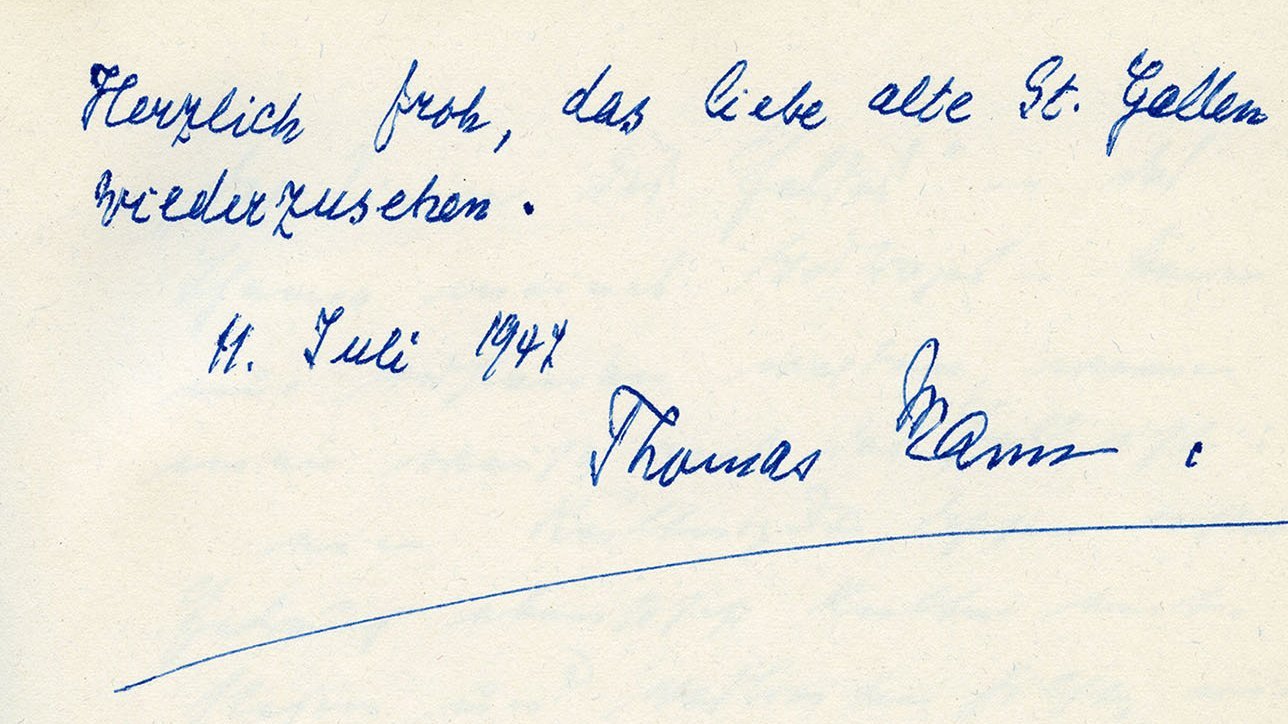The entry made with a blue ballpoint pen in HSG’s guestbook (now held in the university archive) is short and unpretentious: "Really lovely seeing dear old St. Gallen again. July 11, 1947 Thomas Mann." How did it come about that HSG had the honour of such a visit on that date?
Thomas Mann, born in 1875 and awarded The Nobel Prize in Literature in 1929 for his novel Buddenbrooks, had close ties to Switzerland; he had lived in exile in Küsnacht (in the canton of Zurich) between 1933 and 1938 before emigrating to the USA, where he taught as a visiting professor at Princeton University in New Jersey. He returned to Switzerland in 1952 and lived in Küsnacht until he died in 1955, in Zurich, at the age of 80. By 1947, Thomas Mann could already look back on a life’s work that was admired around the world, and in this post-war period his creative energies remained undiminished.
Under the presidency of Professor Theo Keller (1944-1951), a series of academic lectures in the main auditorium (the Aulavorträge) were introduced and, in 1947, the school managed to persuade Thomas Mann to give a reading in this lecture series from his new, as yet unpublished work Doctor Faustus. Even though Mann’s visit was only announced one day before the scheduled date of Friday 11 July, the news immediately met with great interest. Tickets were to be made available from the school caretaker on the Thursday afternoon between 3 and 6 p.m., at 1 franc per ticket for students and 3 francs per ticket for everyone else.

Within the first hour of advance booking, the number of tickets booked already exceeded the number of available seats in the school’s main auditorium, so that the reading had to be moved quite spontaneously to the city’s concert hall. As a result, the summer concert of the city orchestra that was scheduled for that evening had to be cancelled, but on the other hand a much larger number of auditors would now be able to attend the reading. The school’s relocation of the event, and the increased number of tickets available in the concert hall, was then announced by the Tagblatt newspaper on Friday: tickets were now available both in advance and at the box office.
Unfortunately, the university archive does not have a photo of the event. And so we must picture the evening based on the newspaper reports that appeared on the following day, according to which the concert hall had been completely filled with some 700 auditors. In his welcome address, Georg Thürer (Professor of German Studies and Swiss History) emphasised the generosity of the school’s eminent guest, since Mann wished to donate the net proceeds from the evening to an orphanage in Munich that had been destroyed by bombing.
According to the local Tagblatt, Thomas Mann appeared "amiable, youthful and firm". He read two chapters from the novel which he had been working on since 1943 and which was to be published very soon. According to the Volksstimme, another local newspaper, the excerpts from the novel about the life of the composer Adrian Leverkühn were "masterpieces of narrative skill and intellectual finesse", while the Tagblatt described the event as no less than a "triumph of the art of fiction” that was superior in spirit and sparkling with wit and ingenuity. Mann knew how to entertain his audience for a whole 50 minutes "without boring them for a single second," as the Volksstimme further reported. Their applause was correspondingly enthusiastic and genuine.
"Visibly moved" by this warm response from his audience in St.Gallen, Thomas Mann finally took up a pen in order to make his memorable entry in the school’s guest book.
